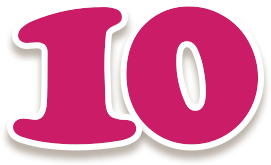An Artist's Journey, Culture Cards & Offers - Wonder Shuffle
 2
2 0
0 1
1 0
0

Wonder Shuffle interviewed Emmanuel Gimeno, a contemporary artist and fashion and fine art photographer, about his life and career.
This is the third part of that interview… where he finds love, moves and explores his life and career.
So you were shooting for fashion brands and magazines and living in Paris? What came next?
Things were going pretty well for me at that point, but then... I met a girl. An American girl, actually, while I was in Paris. And that led to a decision to move to New York. I thought they were waiting for me there, but it wasn’t exactly what I expected.
At the time, I was getting tired of the fashion world. I just wasn’t finding what I was really looking for anymore. I wanted to create art, but fashion was too constricting. You had to showcase the clothing, the model had to look a certain way—it just felt too formulaic. I didn't want to make clean, polished images. I
wasn’t interested in selling stuff, you know?
When I was doing personal work, I felt free. But when I’d work with magazines, sometimes the editor would say, “Can you include this purse? It’s a sponsor's product.” And I’d think, no way. So I ended up burning a lot of bridges with magazines because I didn’t fit in that world. I should’ve been in galleries, not in the fashion scene.
I ended up kind of selling my soul a little bit, pushing too hard for things I didn’t believe in. In a way, I sabotaged myself as a fashion photographer. I was never meant to be a fashion photographer.

So what happened?
I thought New York would be my chance to reconnect with art, but it didn’t really go as planned.
Instead, I ended up working for corporations. I got hired by Morgan Stanley - yes, really - because the director of communications there was a fashionista. She liked my photos and thought they had this energy and emotion that could work for the company, especially to appeal to young people. So, I ended up shooting financial people on trading floors, in Times Square, and all over.
I made good money, but honestly? I was miserable. My contact there would call me, asking me to go to random places like Westchester for a last-minute shoot.
One time, I had to photograph two top executives during a major convention. Everyone around was stressed, scrambling to get these two together. When the staff finally made it happen, they rushed me into a conference room and told me
I had one minute.
I expected two dragons, but instead, I found two relaxed guys joking around. I snapped three photos in 30 seconds. It was a huge hit; the highest-paid 30 seconds of my life. The office gave me great feedback, but deep down, I wanted to be somewhere else.
And then 9/11 happened. My wife was pregnant at the time, and we started thinking, what are we doing here? My wife suggested we move to the Catskills, but I wasn’t so sure about that. Then I said, "What about Bordeaux?" And she was like, “Alright, let’s do it.”
We didn’t move back to Paris—we went to Bordeaux. I made a professional “suicide”, in a way, but it felt like the right move. We raised our family there, and we even opened a wine bar in Saint Emilion.
That was a wild project, honestly.
We bought an apartment, turned it into a cool lounge, hosted jazz nights, and served amazing wines. It was fantastic and tough. The locals weren’t fans because we weren’t from there, but the international crowd loved it. We sold the business just before the subprime crash.

And then?
After selling the wine bar, I met a friend of a friend, who was launching his eyewear brand. I became the creative director for that project, which kept me busy for
a while.
Afterward, I dabbled in other creative direction roles, even worked for a pharmaceutical group. But I wasn’t shooting much. I still got the occasional magazine project, but mostly, I was focused on guiding companies creatively.
It was a great experience, but again, I missed making my art. I wasn’t doing what I loved, and it was starting to wear on me.
So, you were doing communications, agency work, strategy, branding, all that, right?
Yep, exactly.
And then came the health scare, and that kind of forced a refocus. So, what are you doing now? What does your new work look like?
Okay, so my new work feels like a fresh start.
I began identifying what was going wrong—what I was struggling with—and, well, it wasn’t easy.
But once I realized what was hurting me, I decided to face it. Instead of ignoring my wounds, I started to understand them and work through them.
That led to the project I’m working on now called Unwanted Knowledge.
I think I’ve mentioned it before. It’s all about the things you know that you just can't un-know. Once you know something, it’s there, it’s part of you. It’s about the people who’ve been hurt or who carry trauma. I’ve been in situations that were painful to think about, but those things stay inside of you. So, what do you do with them?
My project is about acknowledging and dealing with that—whether it’s through painting, photography, objects, installations, writing, or even just meeting people.
The concept behind Unwanted Knowledge is the opposite of cancel culture. It’s not about canceling things out, but about confronting them, taming them, and putting them in a box—or a painting, or a photo—and owning them. You recognize where the pain is, and by understanding it, you can actually start to heal.
You don’t have to be afraid of it anymore.
So, it’s more than just confronting fear and shame—it’s about using them to create something beautiful. That’s the idea. Right now, I’m doing a lot of work with painting on photographs. It’s like taking the photo, making it personal, and adding my own thoughts and feelings to it. I’ll paint directly on the photo, or even write on it.

So, you were writing and painting on the photos from the start, right?
Yeah, exactly. In the beginning, I was actually recoloring and writing on the prints, scratching into them. Now, I’m still doing that, but it feels like it’s come full circle. This is my new beginning.
It sounds like you’ve come back to the core of what you were doing all along.
Yeah, that’s exactly it. When you dig deep enough, you realize you’ve always been doing the same thing, even if it’s evolved. And I’m finally embracing that.
___
Emmanuel Gimeno is a contemporary artist and a photographer known for his work in fashion and fine art, which has been featured in Harper’s Bazaar, Depeche Mode, Spoon, Twill Magazine, among others.
Explore more of his works at https://emmanuelgimeno.com.


An Artist's Journey
Paris, France
IMAGES
Emmanuel Gimeno - All rights reserved









